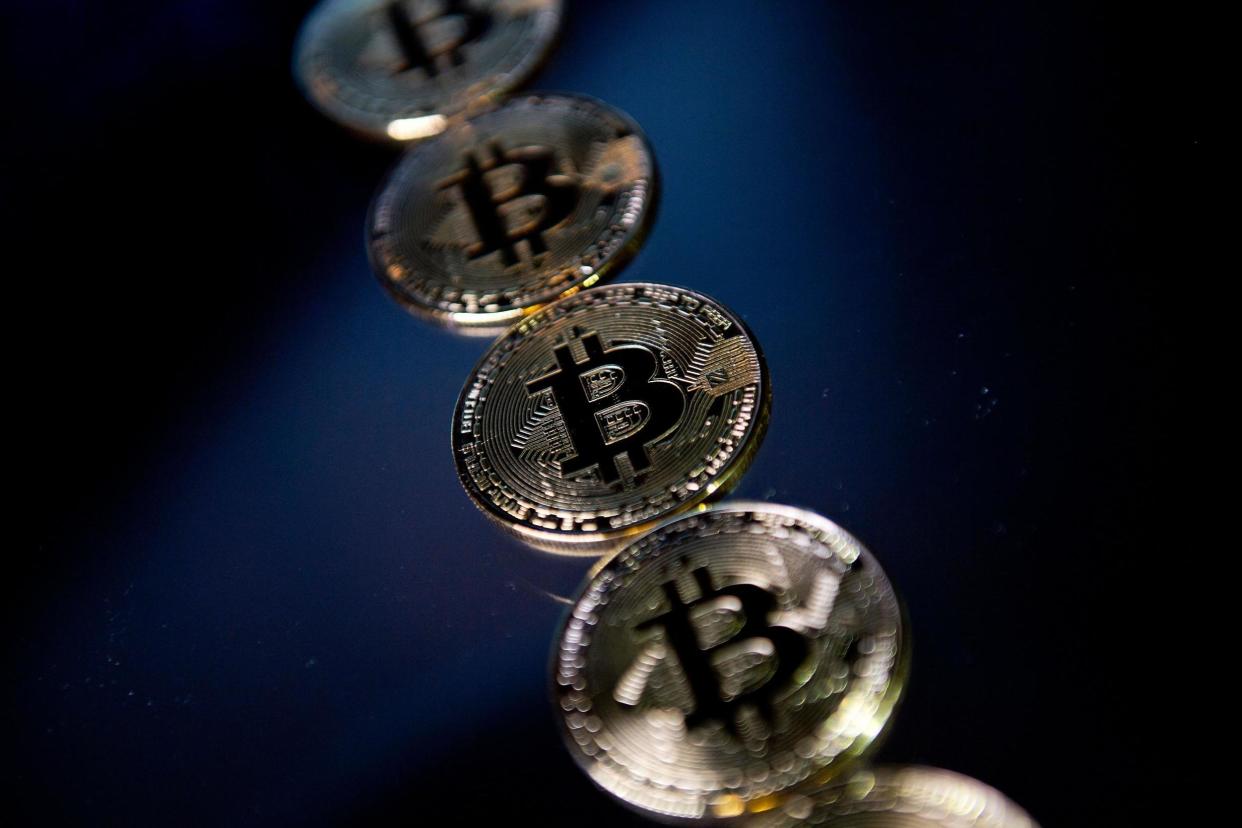Hamish McRae: Crypto-bubble set to burst, but will it matter?

Will the crash of bitcoin matter? If you believe, as I do, that next year we will see the bitcoin bubble burst, then you have to try and think through the next issue, which will be the consequences.
One of my favourite readers, who lives in Singapore and has that knack of posing the killer question, has asked me just that: she wanted to know “whether there’s a possibility of contagion to the wider financial system and how it would come about”.
Let’s get the starting point out of the way. This is a classic financial bubble, of investors buying into a particular asset not because of any financial return — a stream of interest from a bond, of dividends from an equity, or rent from a property — but because it has gone up a lot and they hope it will go up further. If you believe there is intrinsic value, well, good luck.
True, there are other assets which do not produce an income — notably gemstones — that people invest in, but these do have several thousand years of investment history. Crypto-currencies have none. So the bubble will pop. We just don’t know when.
If you are concerned about contagion, the “when?” matters, because the longer the boom runs the greater the number of people who will be sucked into it.
A lot of serious people got in early. We all know people who bought a few bitcoin some time ago and are sitting on big profits. The most famous early investors include the Winklevoss twins, Cameron and Tyler, best know for suing Mark Zuckerberg in 2008 for allegedly stealing the idea for Facebook from them. They received $65 million from that case, and have said they invested $11 million in bitcoin, apparently at around $120 a unit. With the currency closing in on $20,000 (£15,000) last week they could well have become the first Bitcoin billionaires.
There are others. According to Bitinfo, the website that tracks holders, the 10 richest ones have a total of $13.5 billion of the bitcoin between them. They would, however, have to crystallize that gain. Were word to get round that the Winkelvoss twins had started selling, a lot of other people would rush for the door.
When that happens some people will get caught in the crush. There is no way of calculating how large the real losses will be, or how they will be spread, because you don’t know what people paid for their holding.
We can calculate the notional value of all the bitcoin in existence, which on my quick tally is now around $300 billion. That sounds huge but actually is relatively small when set against the value of all the equities in the world of around $100 trillion. Even if you add in other crypto-currencies, such as litecoin, ethereum, zcash, dash, ripple and so on, and even allowing this boom to run a while yet, you would be struggling to get above $1 trillion.
If you think of these crypto-currencies as money, the numbers are big, but as an asset class they are quite small. I personally cannot see them as money because they don’t fulfil the classic functions of a currency, and apparently only a few hundred million dollars’ worth of deals have been done in them.
Maybe they are useful for people who want to stay below the radar, but for mainstream business they don’t figure.
Crucially, when considering the risk of contagion, bitcoin does not seem to be much used (if at all) as security against which conventional financial institutions have lent real money. This matters a lot. If a building goes down in value and a loan is secured against it, not only is the borrower in trouble. The lender is too. That is how banking crashes happen, as well we know.
But if there are no loans secured against bitcoin holdings — and the normal lending controls will apply to bitcoin futures trades, as they would to trades on other markets — I can’t see how a crash in it could become systemic. Nor can I see how the fall in value of this particular asset class can be big enough to unsettle the world economy.
Let’s say, for the sake of argument, that the total value of all crypto-currencies reaches $5 trillion, and then overnight they are worthless. That would on paper be equivalent to a 5% fall in global equity values, but in practice much less so because crypto-currencies are not part of pension fund or endowment holdings, and in any case have only recently acquired their inflated values.
I can only see two troublesome pressure points. One would be if a collapse of crypto-currencies were part of a wider collapse of asset prices — perhaps an irrational trigger for that. Assets are, to put it politely, fully valued at the moment, the result of ultra-loose monetary policy. At some stage there will be a correction. When that happens a crash of bitcoin might be unimportant in itself, but would make a jolly good headline and might have knock-on effects.
The other is that some people, good people, will get hurt. Brains give little protection against bad investment decisions: Sir Isaac Newton was an investor in the South Sea Company and when it crashed in 1720 he lost £20,000, pretty much his life savings. He allegedly observed: “I can calculate the movement of stars but not the madness of men.”

 Yahoo News
Yahoo News 
